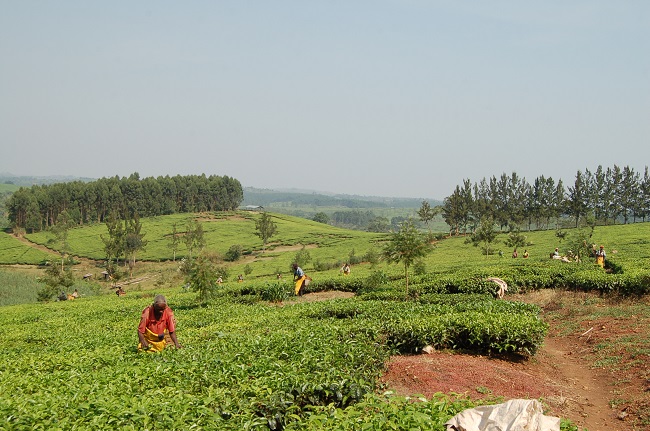KYENJOJO – Tea farmers in Kyenjojo and Kabarole districts in western Uganda are concerned about the high prices of fertilisers which have affected production and quality of the green leaf.
According to Patrick Siisa, the board chairman of Mabale Growers’ Tea Factory, they are facing a challenge of shortage of fertilisers in the area, which has forced prices to go up.
Siisa said the quality of the green leaf harvested by farmers is poor because many of them could not afford fertilisers.
“As a factory, we can no longer purchase fertilisers for our farmers due to the high prices on the market. Initially, a 50-kilogramme bag of fertilisers was being sold at Shs120,000 but it has now increased to Shs 200,000,” she said.
He noted the green leaf being harvested cannot compete on the world market, adding that due to the lack of law and policy to regulate the sector, it is difficult to enforce quality.
Siisa wondered why government has failed to establish an authority for the tea sector to help regulate, promote, and enhance development in the sector.
“Tea is Uganda’s third largest export but the sector has no law and policy to enforce quality assurance which is upsetting,” he said.
Amon Mirika, a tea farmer revealed that due to high prices of fertilisers, fake fertilisers are being sold on the local market.
“Some farmers resort to using fake fertilizers on the market which are cheap because they cannot afford the effective ones since they are expensive for them,” Mirika said.
He urged government to help them access fertilisers at a subsidized price because the quality of the green leaf is being affected.
The general manager of Mpanga Growers’ Tea Factory, Saul Balisima Kusemererwa also confirmed that the absence of the policy to guide the sector has created many challenges.
He urged the government to formulate a policy that can regulate the tea sector, saying farmers and the country at large will continue earning less from the crop if nothing is done.
The call was made recently during the field visit by the Committee of Parliament on Tourism, Trade and Industry to Mabale and Mpanga Growers’ Tea Factory to assess investments of government under the Uganda Development Corporation [UDC].
The chairperson of the committee, Mwine Mpaka said government invested over Shs 31 billion in the tea factories and wanted to know the socio economic impact the investment has made on the farmers and the community at large.
“I wonder why Ugandan tea is repackaged and sold as Kenya tea on the auction market and whether matters of quality assurance are being addressed by the factories in order for them to make profits,” Mpaka said.
He however said parliament will interest itself on the issue of high prices of fertilizers and push government to subsidize them [fertilizers] because farmers are not making profits.
“Government needs to interest itself to help farmers in order to boost tea production. Much as the government has a policy on rationalisation of its entities, the tea sector needs an authority to regulate it so that farmers harvest the best quality tea which can fetch better prices on the World market,” he noted.
He said this will enable the country to sell its tea in other markets other than at the Mombasa Tea Auction.
Government invested Shs 25bln in Mabale Growers’ Tea Factory where it has 48 percent shares and Shs 6bln in Mpanga Growers’ Tea Factory where it has 31 percent shareholding.
Brief facts
Tea is Uganda’s third most important agricultural export earner after coffee and fish.
Tea has contributed approximately 3.6 percent of Uganda’s export earnings over the last five years and has the potential to contribute more to national income, employment, and environmental conservation.
Tea is one of the 12 prioritized commodities in Uganda’s Vision 2040 and is a strategic crop in the 3rd National Development Plan [NDPIII] covered under agro-industrialisation.
https://thecooperator.news/norway-govt-earmarks-us-10-15mln-for-fertilizer-supply-in-uganda-others/
Buy your copy of thecooperator magazine from one of our country-wide vending points or an e-copy on emag.thecooperator.news
